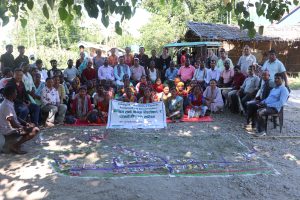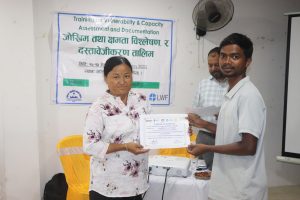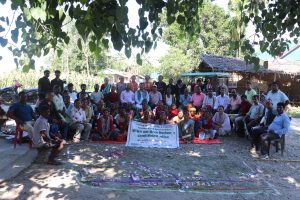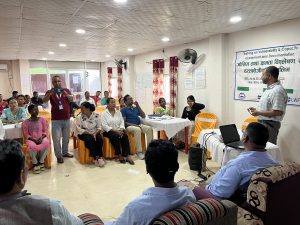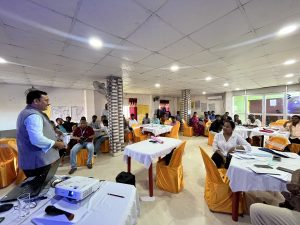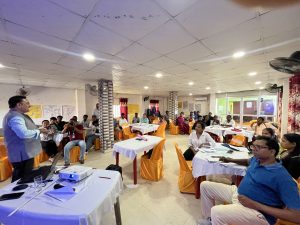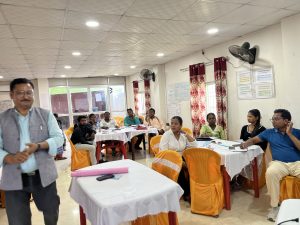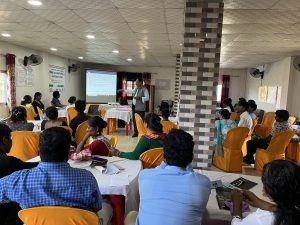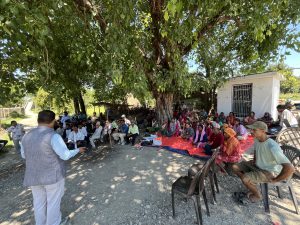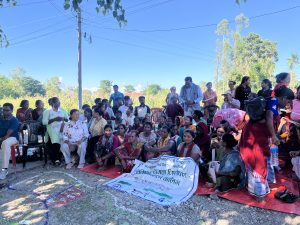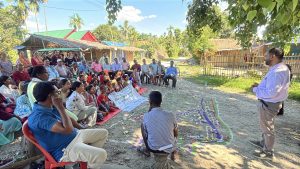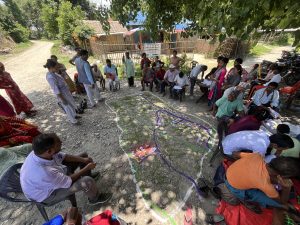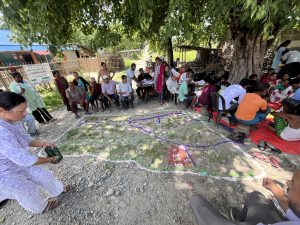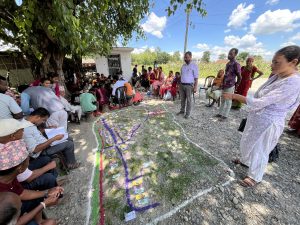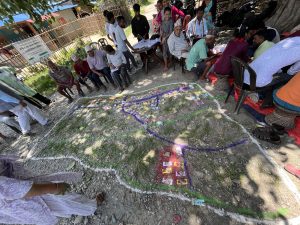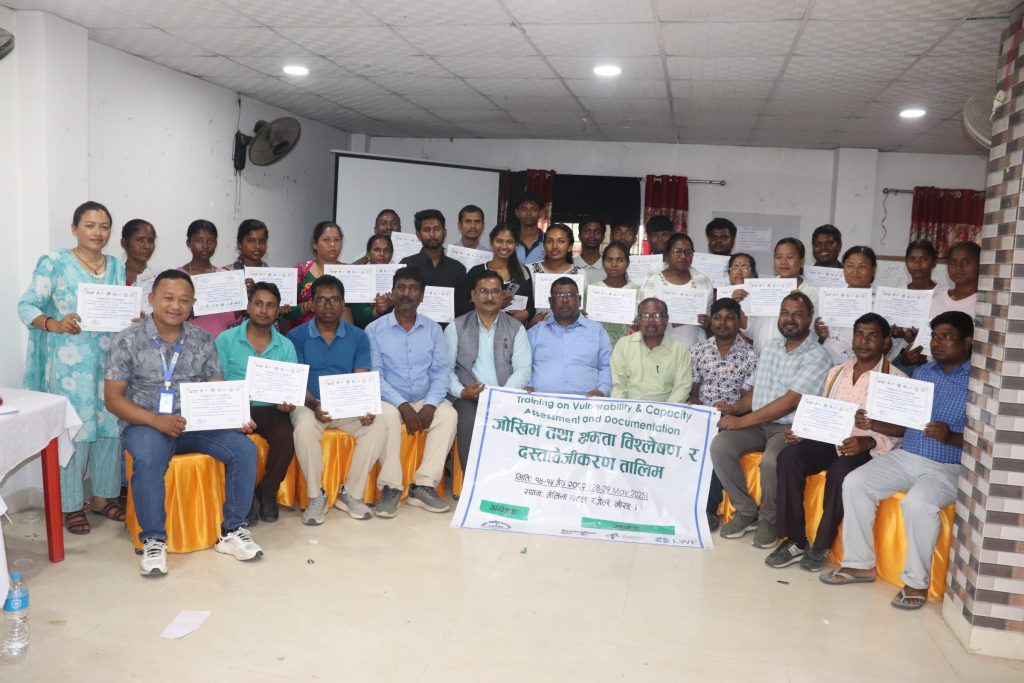Lutheran Community Welfare Society (LCWS), with support from LWF Nepal and funding from ALWS and DFAT, successfully organized a four-day training on Vulnerability and Capacity Assessment (VCA) and Documentation under the LICED Project. Held from 26th to 29th May 2025 at Melina Hotel in Rangeli, the training aimed to strengthen local capacity for disaster risk reduction and management.
A total of 36 participants, including 21 males and 15 females, took part in the training. The sessions were facilitated by Mr. Ram Kumar Dahal, a Disaster Risk Reduction (DRR) Specialist and member of the Provincial Disaster Executive Committee, Koshi Province, who brought his extensive knowledge and experience to the training.
The first two days of the training, 26th and 27th May, were dedicated to theoretical sessions. These sessions covered key disaster-related terminologies, the disaster management cycle, and the existing policies and structures related to DRR and disaster management in Nepal. Participants were also introduced to the concept and process of VCA, gaining insights into the use of various tools and methods. These included community resource assessment, vulnerability and capacity analysis, hazard mapping and stratification, historical disaster timelines, hazard calendars, problem tree analysis, organizational relationship mapping, mobility assessments, and seasonal calendars related to disaster events.
On 28th May, participants moved to the field for practical application of their learning. The field session was conducted in Kanepokhari Rural Municipality Ward No. 2, Mainabari, where they engaged directly with local community members. A total of 55 people from the community, including 24 males and 31 females, actively participated in the field-based VCA activities, making the session rich and interactive.
The final day, 29th May, focused on documentation. Participants were oriented on how to write VCA reports and develop action plans based on their field experiences. This session helped participants synthesize their theoretical learning and field observations into structured documents that can inform future disaster preparedness and response plans.
Overall, the training was an enriching experience for all involved, contributing significantly to local resilience-building efforts and promoting community-based disaster risk management in community level.
